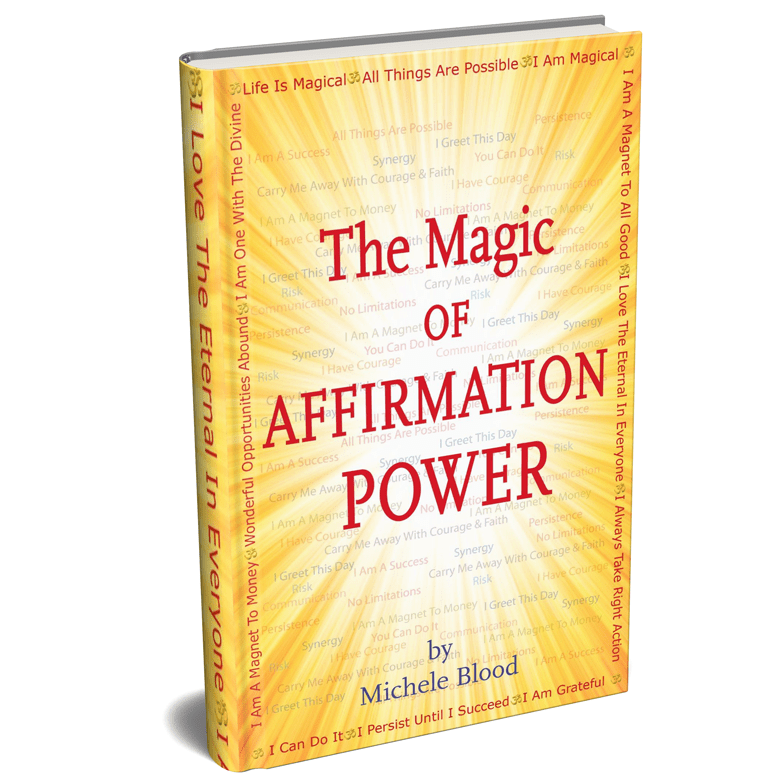Use The Links Below To Be Taken
To That Specific Portion Of This Page
Use my Musical Affirmation Songs to replace
doubt, limitation, and negativity with
positive confidence, joy, and inner strength.
Please scroll down for Michele’s Bio,
Headshot, Onesheet, and Research Studies
on how Positive Music and Affirmations
affect the Mind and Body.
The Magic Of Affirmation Power

Downloading instructions:
On the Link Below:
1. Right click (Command-Click For Macs)
2. Left click on ‘Save Target As’
3. Left click on ‘Save’
Songs For Success
by Michele Blood & Bob Proctor

Downloading instructions:
On the Link Below:
1. Right click (Command-Click For Macs)
2. Left click on ‘Save Target As’
3. Left click on ‘Save’
CREATE MIRACLES
Powerful Affirmation Songs
To Harmonize Your Life

Downloading instructions:
On the Link Below:
1. Right click (Command-Click For Macs)
2. Left click on ‘Save Target As’
3. Left click on ‘Save’
Michele’s Bio
Michele Blood is a successful, multi-talented lady. Michele was a rock singer in Australia and after a near fatal car accident, she created positive Affirmation Songs which not only healed her body but also took her to worldwide success. These Affirmation songs affect the left and right hemispheres of the brain. Lyrics, the left hemisphere, and melody and music, the right hemisphere so the new, positive messages go straight to the subconscious mind. This is why millions of people worldwide have downloaded her Affirmation Power songs. These songs cover healing, success, money, joy, confidence and they uplift the person immediately. In addition to creating Magnet To Success™ products and seminars worldwide, her public Mystical Success Events have been held in over 26 countries. Michele has co-written and created over 80 books, music CDs, audio programs, TV shows, and videos on positive thought, mind transformation, and meditation.
Research Studies Done On Music with Affirmations
Seeing all of these studies proves that the combination of Affirmations used as the Lyrics combined with the pop Music that Michele Blood has created gives an immediate change to the body, mind, and mood as it is a whole-brain experience.
The Neurochemistry Of Music
Department of Psychology, McGill University, Montreal, Quebec
Music literally changes the brain. Neurological researchers have found that listening to music triggers the release of several neurochemicals that play a role in brain function and mental health: dopamine, a chemical associated with pleasure and “reward” centers stress hormones like cortisol, serotonin and other hormones related to immunity, oxytocin, a chemical that fosters the ability to connect to others.
Dr. Valorie Salimpoor of the Rotman Research Institute explains the
neurology behind the human love of music.
“The impact of positive thinking has been a subject of focus for psychologists and self-help gurus for ages now, but what about positive listening? Is there such a thing as intentionally listening to positive-sounding music to boost your mood? We already know music that gives us the chills helps to release dopamine, but a separate study found that people who intentionally listened to upbeat music improved their moods and happiness in just two weeks. When a separate group was instructed to listen to different music that wasn’t deemed positive-sounding, they didn’t experience the same mood-boosting effect. So the next time you’re blue, maybe put on a song that will make you smile.”
Psychological vulnerability and stress: The effects of self-affirmation on
sympathetic nervous system responses to naturalistic stressors
American Psychological Association
Self-affirmation activates brain systems associated with self-related
processing and reward and is reinforced by future orientation
University of Pennsylvania, Annenberg School for Communication, Philadelphia, PA,
University of Michigan, Institute for Social Research, Ann Arbor, Michigan
Department of Psychology, University of California, Los Angeles, California
Keep Your Brain Young with Music
Johns Hopkins School of Medicine
Music Therapy and Music-Based Interventions for Movement Disorders
Peabody Institute, Johns Hopkins University, Baltimore, MD, USA
Department of Neurology, Johns Hopkins University School of Medicine, Baltimore, MD, USA



